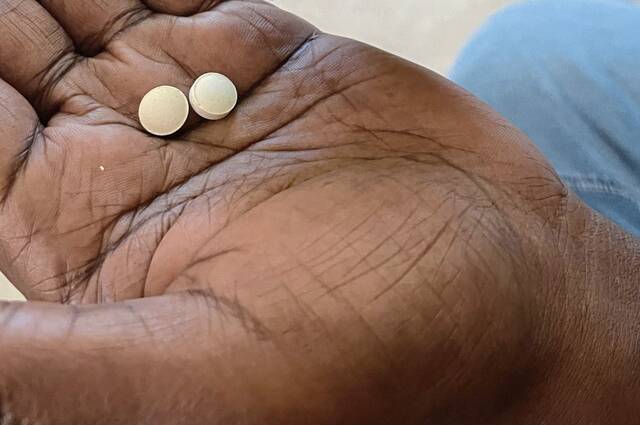https://triblive.com/local/regional/study-says-long-term-melatonin-use-may-pose-heart-risks/
Study says long-term melatonin use may pose heart risks

For many, a good night’s sleep is hard to come by.
More than 30% of Pennsylvanians sleep fewer than seven hours a night, according to data from the United Health Foundation.
In an effort to fight insomnia and get adequate rest, many turn to over-the-counter sleep aids or supplements like melatonin.
But new preliminary research released by the American Heart Association on Monday warns that long-term use of melatonin may increase risk of heart failure.
The study, to be presented at the American Heart Association’s meetings this weekend, analyzed five years of data from over 130,000 people with insomnia and found a link between melatonin use and a higher risk of heart failure or death.
Melatonin is a hormone in the body that plays a role in sleep, with production in the brain increasing when it’s dark and decreasing when it’s light. Melatonin is also widely available as an over-the-counter supplement, typically in an oral tablet or capsule.
“Poor sleep wreaks like havoc on our metabolism,” said Dr. Brenda Mendizabal, director of preventive cardiology at UPMC Children’s Hospital of Pittsburgh and board president of American Heart Association of Greater Pittsburgh. “It has so many deleterious effects on not only your cardiovascular health, but metabolic health. It’s something that we should be talking about.”
The study focused on adults diagnosed with insomnia, with an average age of 55.7 years. Among the 130,828 participants, about half — 65,414 — had been prescribed melatonin and reported using it for at least a year, according to data from the American Heart Association.
The study’s control group — who had never been prescribed melatonin — were matched to the group taking melatonin by demographic information, health conditions and medications such as age, sex, race and ethnicity, heart and nervous system diseases, blood pressure and body mass index, the report said.
“Melatonin supplements are widely thought of as a safe and ‘natural’ option to support better sleep, so it was striking to see such consistent and significant increases in serious health outcomes, even after balancing for many other risk factors,” said Dr. Ekenedilichukwu Nnadi, lead author of the study and chief resident in internal medicine at SUNY Downstate/Kings County Primary Care in Brooklyn, N.Y., in a news release.
Nnadi said the study couldn’t prove a “direct cause-and-effect relationship,” but it found that adults with insomnia who took melatonin for a year or more had about a 90% higher risk of heart failure than nonusers.
The study’s data also did not include information on melatonin dosage, as such details were not consistently recorded in the health records, Nnadi said
The American Heart Association also found that participants taking melatonin were nearly 3.5 times as likely to be hospitalized for heart failure and nearly twice as likely to die from any cause than those not taking melatonin, the study said.
In the United States, melatonin is considered a dietary supplement, meaning that it is subject to less strict regulations by the Food and Drug Administration than a prescription or over-the-counter drug. In several other countries, including the United Kingdom, melatonin is available only with a prescription and is considered a drug, according to the National Center for Complementary and Integrative Health.
Joyce Oen-Hsiao, an associate professor of cardiovascular medicine at Yale School of Medicine, pointed out some flaws in the study. She told The Washington Post that the health record data did not show whether patients with insomnia who were prescribed melatonin actually experienced changes in their sleep.
“If they had such bad insomnia that they needed prescription-dose melatonin, were they actually getting the benefit of the melatonin for sleep?” Oen-Hsiao said to the Post. “And if the answer is no, then you cannot have a correlation that melatonin causes heart failure.”
She, along with other experts, called for more research into the the long-term use of melatonin.
Mendizabal, the UPMC Children’s Hospital doctor, said Monday that she had not yet read the study. But she cited natural ways to improve sleep hygiene, in order to wake up feeling well rested and energized. These include eating pistachios, which boost melatonin, keeping screens out of the bedroom, and practicing mindfulness and breathing techniques.
“I think we don’t put nearly as much emphasis on sleep hygiene as we should,” Mendizabal said. “Most people, when they’ve had a good night’s rest, is somebody who wakes up feeling refreshed, somebody who feels like they’re ready to kind of tackle the day.”
TribLive reached out to the FDA to ask whether the study could lead to a change in melatonin’s classification and or the need for a prescription, but did not receive a reply on Monday.
Copyright ©2026— Trib Total Media, LLC (TribLIVE.com)
